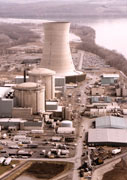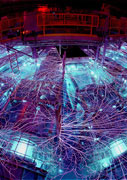Program on Science, Technology and Society at HarvardHarvard Kennedy School of Government | Harvard University |
||||||||
|
|

Imaginaries Work at Other InstitutionsScholars at several universities in Europe and the US are actively incorporating imaginaries into their ongoing research. These include Arizona State University, UC Berkeley, ETH-Zurich, Lancaster University (UK), and the University of Vienna (Austria). Imaginaries also featured as an organizing concept for an interdisciplinary workshop on sustainability, science studies, and synthetic biology, “Fractured Imaginations: Innovation, Globalization and the Collective,” organized by the Woodrow Wilson Center in Washington, DC in October 2009. The PI’s visits to East Asia in 2010 aided in further transnational diffusion of the concept and will lay the basis for additional collaborative work in the future. The 2010 4S Program Committee requested Jasanoff to speak on imaginaries in the opening plenary, again attesting to the concept’s diffusion and perceived significance. The project contributed to legal scholarship, especially to traditions of critical legal scholarship. The notion of “sociotechnical imaginaries” figures in an edited volume: S. Jasanoff, ed., Reframing Rights: Bioconsttutionalism in the Genetic Age (MIT Press, 2011). Both the book and a subsequent research grant on bioconstitutionalism from the Greenwall Foundation to the Harvard STS Program (PI Jasanoff) have opened new doors between STS and legal scholarship. The project developed this research platform as an innovative web-based resource for communicating research results to broad interdisciplinary audiences in STS and other social sciences. The platform is innovative in that it locates a central theoretical concept in a wider literature, offers methodological guidance for research using the concept, provides sample primary resources for such research, and uses the visual medium in new ways for research. As an experimental idea, the platform is still a work in progress, but lessons learned from this exercise will inform future NSF-funded research projects undertaken by the STS Program. Technolife“The ways in which citizens imagine possible futures and the ways in which people are concerned or encouraged by developments are important to the development of technologies and the social roles they will come to play.” https://www.technolife.no/ Technolife, a project conducted under the EU FP7 framework program, employed a novel interdisciplinary approach to research on the ethical and social implications of new technologies. Researchers used the concepts of imaginaries and imagined communities for exploring ethical concerns in ways that do not unduly suppress the complexity, heterogeneity, and ambivalence of responses to technological developments. Administered by the Centre for the Study of the Sciences and the Humanities at the University of Bergen, the project included research partners in Denmark, Estonia, France, Italy, Spain, and the United Kingdom. For project outputs, see https://www.technolife.no/hXGXBowRbI5f.4.idium University of ViennaTechno-political Cultures: Assembling, Rehearsing and Stabilizing Our research on sociotechnical imaginaries has created a better understanding of how science, technology and imaginations of national identity are co-produced. We are interested in understanding how scientific and technological projects are framed by and perform specific imaginations of social life and social order within national settings. This work is organized around specific case studies (mainly in the domain of life sciences, biomedicine and material sciences); it is partly comparative among European countries and tries to build a strong empirical basis for longitudinal studies across projects (through a database of research material) in order to grasp phenomena of change. We approach issues related to socio-technical imaginaries from three different perspectives (Information on all the projects mentioned below can be found at https://sciencestudies.univie.ac.at/en/research/): 1. Citizens’ vision of technoscientific futures This body of work gravitates around the question how citizens imagine the formation and development of (more or less specific) technoscientific futures and their own role in giving shape to them. Our research investigates citizens’ positioning towards specific biomedical technologies and interventions and towards developments in the nano area, by studying their references to a specific civic epistemology, repertoires of cultural references, or visions of a shared history. Selected publications:
See projects: Nano and Society, Challenges of Biomedicine, Let’s talk about GOLD!, Perceptions and Imaginations of Obesity 2. Reverse sociotechnical imaginaries While much of the work on socio-technical imaginaries has focused on specific technological “projects,” we also investigate forms of technological refusal as a way of forming and mobilizing nation specific socio-technical (counter)imaginaries. Across areas such as nuclear power and genetically modified food a quite stable imagination of Austria has developed, one where the nation can be conceptualized as a space free of certain socio-technical developments. How such imaginaries are developed and stabilized along a historical trajectory, as well as how they become an important resource in assessing technoscientific futures, are at the core of this research. Selected publications:
See projects: Nano and Society; Challenges of Biomedicine; 3. Socioscientific imaginaries Our third research perspective focuses on the socio-scientific imaginaries embedded in science policy instruments, in institutional developments, and in how scientists perceive their life and work in science. We investigate the impact of ever tighter science-society relations as well as recent reforms in academic institutions on life-science research; the developments within “intermediary institutions” (start-ups; transfer-enterprises); and the cultures and practices in transdisciplinary research on sustainability issues. Selected publications:
See projects: Living Changes in the Life Sciences, Knowledge Institutions and Gender, Transdisciplinarity as culture and practice |
|||||||



